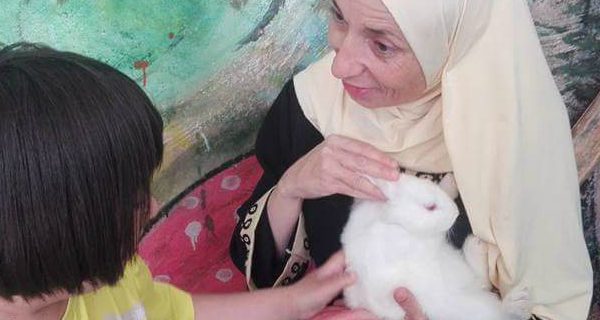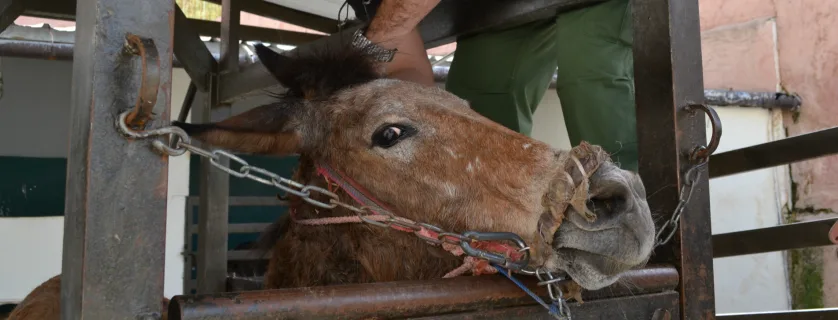
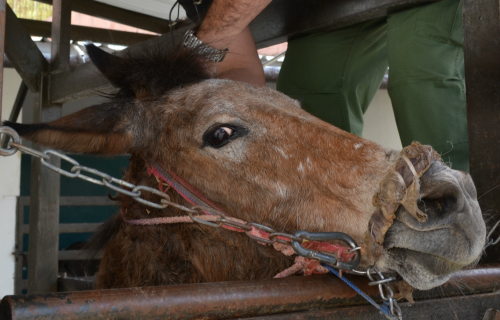
Bringing you an update from Jordan
For the past 27 years, SPANA has been providing veterinary care to the working animals of Jordan and education to their owners. Read SPANA’s update of our ongoing work and the difference that we’re making to both people and animals.
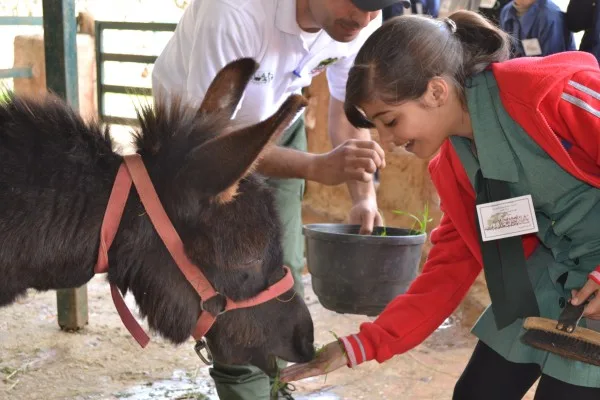
Since 1989, SPANA has been working in Jordan, running a centre near Amman and two mobile clinics that reach thousands of animals every year. Every day SPANA staff travel to remote villages across the country to help the rural communities who depend on their horses, mules, donkeys, and cattle for survival. Our SPANA education centre also delivers animal welfare classes through our popular Animal Clubs to over 2,000 children a year, teaching the next generation to love and care for their hardworking animals.
In 2015 alone, SPANA treated more than 3,000 working animals from the agricultural and domestic sector who would otherwise be without any medical support. Animals like Zander the mule, who was brought to our centre with a deep cut to his neck. Working alongside his owner Mefleh Abu Sondos for up to 12 hours a day, Zander spends five months a year ploughing their small plot of land to provide food and income for Mefleh’s wife and five children.
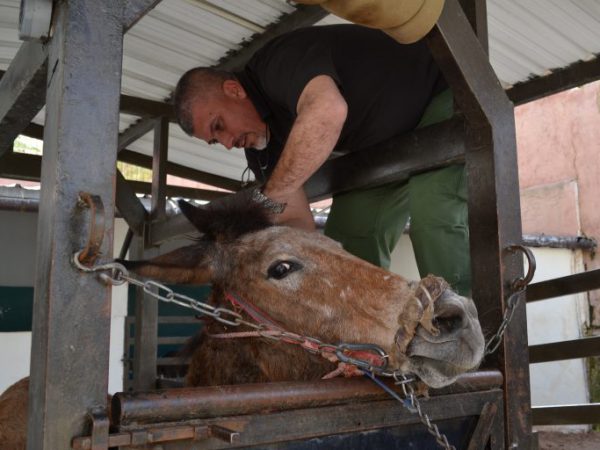
When Zander’s head collar broke, rubbing a painful wound into the delicate skin near his ear and neck, Mefleh took Zander to the SPANA centre immediately. Our vets washed and cleaned the wound, prescribed antibiotics and asked Mefleh to let exhausted Zander rest for 10 days. They also gave Mefleh a new flexible head collar which will prevent future wounds and make him much more comfortable as he works. Mefleh thanked the team – he knows how important they are for farmers like himself. He said:
‘I have known SPANA for a long time and I always bring my animals here when I see there is a problem.’
For SPANA country staff like Dr Ghazi, Jordan Country Director since 2005, cases like Zander’s are common, as are issues like infectious disease, parasites, and poor nutrition. But change is happening in Jordan as in other countries where we work. Dr Ghazi has seen a real difference as a direct result of SPANA’s education efforts and said:
‘People’s attitudes have changed, especially towards donkeys. Traditional practices, such as nose slitting, used to be common 10 years ago – thanks largely to SPANA’s work with the community, we now don’t see any cases.’
The SPANA Jordan team continue to work tirelessly to treat the sick and injured working animals of the country while at the same time encouraging a better understanding of the importance of animal welfare.
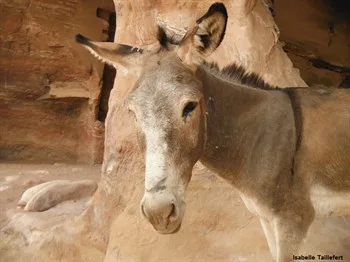
As part of this systemic change taking place in Jordan, SPANA is also proud to support the Care For Petra campaign, which seeks to encourage responsible tourism in and around the UNESCO Heritage Site of Petra. One of the campaign’s core goals is to encourage better working conditions and welfare for the 700 horses, donkeys, and mules carrying tourists within Petra Park.
These animals are critically important to the tourism industry in Jordan and are often their owner’s main source of income. Care For Petra champions the education of owners, local vets, and tourists who support the industry. SPANA has proudly joined with a taskforce of 12 government and non-governmental bodies, offering our technical support and contribution to the development of this campaign and continues to see positive evolutions in the lives of animals working in tourism in Petra as a result.
To read more about SPANA’s work in Jordan, head to our Jordan country profile page.

